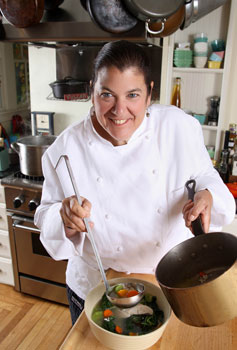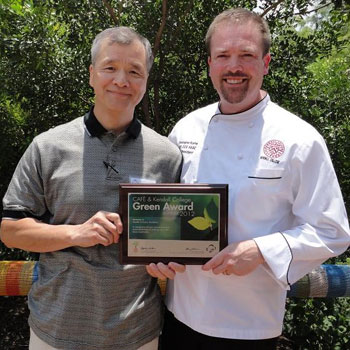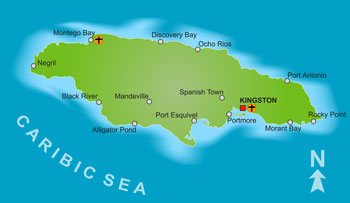Chefs Speak Out: Is that Culinary Fate Knocking at the Door?
Monday, 07 January 2013 12:22
 Ris Lacoste, owner of RIS in Washington, D.C., got her big break while typing recipes at La Varenne Écôle de Cuisine in France. Today a chef celeb and successful restaurateur, she has a particular message for women in culinary: You can handle the job. Lacoste should know.
Ris Lacoste, owner of RIS in Washington, D.C., got her big break while typing recipes at La Varenne Écôle de Cuisine in France. Today a chef celeb and successful restaurateur, she has a particular message for women in culinary: You can handle the job. Lacoste should know.
By Lynn Schwartz
Ris Lacoste has been a culinary shining star in Washington, D.C., for more than two decades. She arrived in the nation’s capital from New England in 1987 to help Chef Bob Kinkead open Twenty-One Federal and then Kinkead’s American Brasserie. Washingtonian magazine named them Restaurateurs of the Year in 1992. Lacoste then spent 10 years as executive chef of Georgetown’s 1789 Restaurant, where her innovative, regional fare earned numerous awards and national recognition.
Lacoste is also a writer and created “Cooking for Julia,” a PBS documentary celebrating Julia Child’s 90th birthday. When Lacoste faced a big birthday of her own, 50, she knew it was now or never to open a restaurant, and RIS, situated in the heart of D.C.’s West End, was born. “I suppose opening a restaurant is really a young man’s job,” Lacoste says, “but I also know that RIS is successful because I’ve come with years of experience. I know what I want. I know how to get things done.”

 Like it or not, for a growing number of our students, Facebook is the preferred means of communicating—with everyone. To help them use their Facebook sites effectively, we need to remind them of at least three important guidelines: audience, permanence and development.
Like it or not, for a growing number of our students, Facebook is the preferred means of communicating—with everyone. To help them use their Facebook sites effectively, we need to remind them of at least three important guidelines: audience, permanence and development. Chef Weiner argues there’s only one right answer.
Chef Weiner argues there’s only one right answer. Share your best ideas for innovation in teaching sustainability by April 1, 2013.
Share your best ideas for innovation in teaching sustainability by April 1, 2013. Volume VII in the World Culinary Arts Series at ciaprochef.com, focusing on the cuisines of Jamaica, Puerto Rico, Trinidad and Tobago.
Volume VII in the World Culinary Arts Series at ciaprochef.com, focusing on the cuisines of Jamaica, Puerto Rico, Trinidad and Tobago.